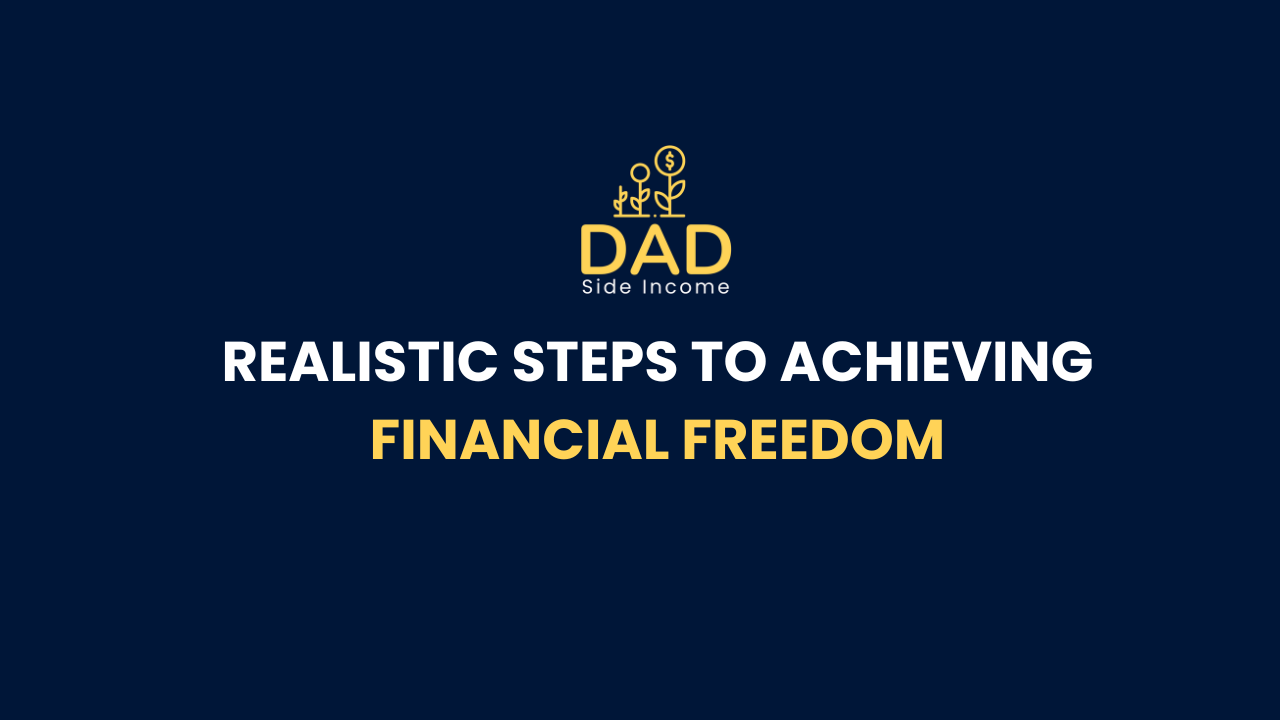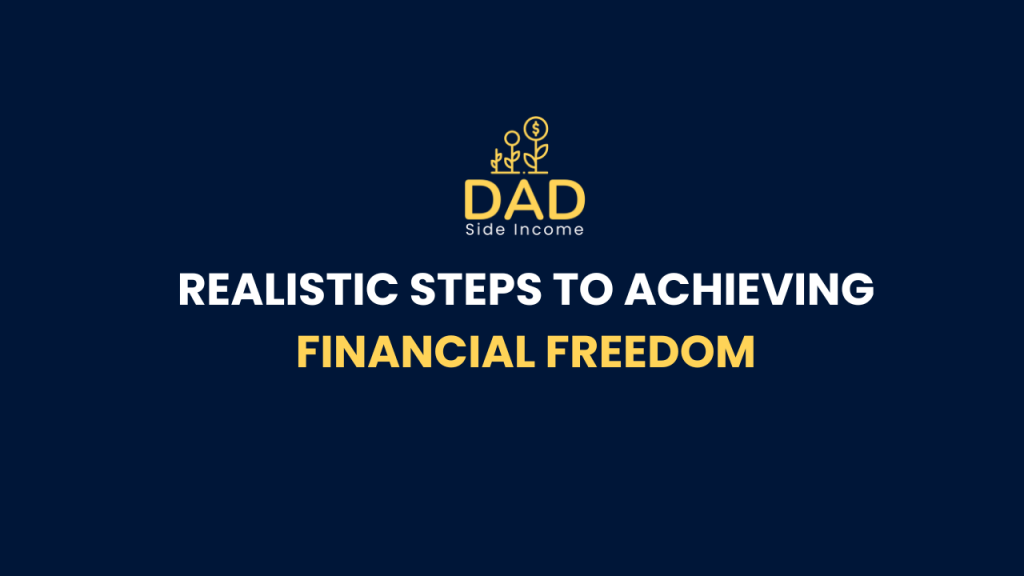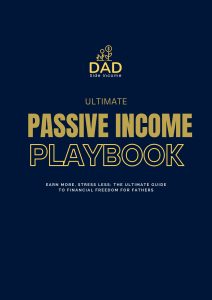What is Financial Freedom?
Financial freedom is the cornerstone of a life lived on your own terms, unburdened by the constraints of financial limitations. It is the state of having sufficient income to cover your living expenses independently of a traditional job, thereby freeing you from reliance on a single source of income.
In our relentless pursuit of greater earnings, we often find that the precious commodity of time slips through our fingers. This imbalance can result in our children growing up with an absent father, creating a deeply unfulfilling experience for the entire family.
Achieving financial freedom is not merely about amassing wealth; it is about reclaiming time for the activities and people that matter most. It allows you to be present with your family, to pursue your passions, and to enjoy a life free from financial stress.
If your ambition is to attain financial freedom, I invite you to read on.
Step #1: Find Your Why
Achieving financial freedom is a journey that demands significant action, unwavering discipline, and steadfast commitment. It is not a state that can be reached through passive efforts or minimal engagement.
To embark on such a transformative path, it is crucial to first understand the “why” behind your aspiration for financial independence. What is the driving force that compels you to seek this change?
- Is it the desire to be more present in the lives of your family?
- Is it the fear of not having enough time for the things that truly matter?
Identifying and deeply understanding your motivation is the bedrock of this journey. This clarity will empower you to navigate challenges with resilience and remain committed to your goal, ensuring that you stay the course even when obstacles arise.
Step #2: Quantify the Amount of Money You Need to Be Financially Independent
Everyone’s financial freedom figure is different. To achieve financial independence based on your own standards, you need to determine how much money is required to sustain your lifestyle. Here’s a step-by-step approach:
- Calculate Monthly Expenses: Include housing, utilities, food, transportation, insurance, childcare, education, entertainment, and miscellaneous expenses.
- Annualize Your Expenses: Multiply your monthly expenses by 12 to get the annual amount.
- Factor in Inflation: Adjust for an average inflation rate of 3-4% per year.
- Determine Your Financial Freedom Number: Use the 25x rule, which suggests having 25 times your annual expenses saved or invested. This rule is based on the 4% safe withdrawal rate, which indicates you can withdraw 4% of your savings annually without depleting your principal.
Example:
- Monthly Expenses: $5,000
- Annual Expenses: $5,000 x 12 = $60,000
- Financial Freedom Number: $60,000 x 25 = $1,500,000
Step 3# What is the Lack? Execution Issue or Knowledge Issue?
Now you have a goal. You know how much money you will need to earn in order to achieve financial freedom. The next step is to identify the gap—what is stopping you from achieving financial freedom?
Generally, the gap is typically due to either a lack of knowledge or a lack of execution. Understanding whether your obstacle to financial freedom is due to a lack of knowledge or execution is crucial. Identifying the root cause allows you to address the issue effectively.
Knowledge Issue
If you are at a stage where you don’t know how to start or what to do to achieve financial freedom, you might have a knowledge issue. You will need to consume more information and educate yourself.
1. Educate Yourself
Read books, blogs, and articles on personal finance, investing, and wealth management.
2. Take Courses
Enroll in online courses or attend workshops on financial planning and investing.
3. Join Communities
Participate in forums, social media groups, or local meetups focused on financial independence.
4. Consult Experts
Seek advice from financial advisors or mentors who can provide personalized guidance.
5. Listen to Podcasts
Find podcasts that cover topics on financial literacy, investing, and financial independence.
6. Watch Videos
Utilize platforms like YouTube for educational videos on budgeting, saving, and investing.
7. Subscribe to Newsletters
Sign up for newsletters from reputable financial websites and experts to get regular updates and tips.
Execution Issue
If you are someone who has consumed a lot of information and always paying for “get rich courses” but fails to take concrete action, you might have an execution issue. Having a mentor or using time blocking techniques can help you manage your time effectively and ensure consistent progress toward financial freedom.
1. Identify Priorities
List out your weekly tasks that need your attention, such as:
- Taking care of children
- Spending time with loved ones
- Work commitments
- Financial planning activities
2. Create a Schedule
Allocate specific blocks of time each week to focus on these tasks. Be intentional in blocking off time for activities that will propel you toward financial freedom.
3. Set Goals
Establish clear, achievable financial goals and deadlines. Break them into smaller, manageable steps to make them less overwhelming and more attainable.
4. Accountability Partner or Mentor
Like personal training, having someone to be accountable to can keep you on track with your plan. Without accountability, it is easy to let things slide and stray off track. A mentor or accountability partner can provide guidance, support, and motivation.
5. Track Progress
Regularly monitor your progress and adjust your time blocks as needed to stay on track. Use tools like planners, apps, or journals to record your progress and reflect on what’s working and what’s not.
By implementing these strategies, you can address execution issues and make consistent progress toward achieving financial freedom.
Step #4: Regain Your Energy Level & Fitness
The obvious thing is sometimes the most easily missed. As working fathers, we are often easily drained, and by the time we reach home after work, we do not have the energy to do anything. Regardless of how well we time block or how motivated we are, our dwindling energy levels will often be the reason why we lack the follow-through to move ahead with our plans.
I once told myself that I would go back to the gym after I achieved financial freedom. However, life does not work this way. If you find yourself in this situation, one of the first things you should do is regain your fitness level. Having more energy will enable you to embark on more activities every day and follow through on your plans.
Start by eating healthily and make a committment to exercise at least 3 times per week.
Step #5: Remember The End Goal and Enjoy The Process
Achieving financial freedom is a journey that requires focus, dedication, and a clear vision of your end goal. It’s essential to keep this goal in mind and enjoy the process along the way.
Time Blocking
One effective strategy to stay on track is time blocking. This involves allocating specific blocks of time for important tasks and sticking to that schedule. By organizing your day this way, you can ensure that you make consistent progress towards your financial goals.
Avoid Wasting Time
Be mindful of how you spend your free time. Activities like watching TV or mindlessly scrolling through social media can eat up valuable time that could be used more productively. Instead, focus on activities that contribute to your goals, such as:
- Learning: Read books or take online courses related to personal finance and investing.
- Planning: Use this time to review your budget, track your expenses, and plan your investments.
- Self-Improvement: Engage in activities that boost your skills and knowledge, such as exercising, meditating, or pursuing a hobby.
By remembering your end goal and enjoying the process, you can make the journey to financial freedom a fulfilling and rewarding experience.





